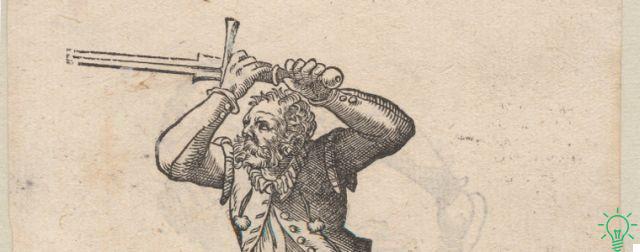When a person sets himself the goal of quitting smoking, in addition to applying the right measures to overcome physical addiction, he should also investigate the real reasons that led to the addiction and the meaning that tobacco has taken on in his life.

Last update: 17 March, 2020
Often it is not possible to remain firm on the decision to quit smoking. This is because you do not have the right psychological preparation: the will can be great, but the strategies are weak. Perhaps there is no clarity on the reasons for engaging or there is a lack of conviction in the face of the benefits of giving up smoking.
Addiction to tobacco is physical, but also psychological. You don't smoke just out of habit, there are reasons behind this action that we could ignore. The cigarette, although harmful, also offers a state of well-being and a form of relief, albeit momentary. Quitting smoking, therefore, would also mean not feeling these benefits anymore.
Nicotine is a highly addictive substance and abandoning it takes effort, but in many cases it is also a mental exercise. Yet it doesn't all depend on physiological aspects. When a person starts smoking, he develops a whole series of behaviors and attitudes that revolve around tobacco. This means that even quitting smoking has a whole scaffolding behind this behavior.
The habit of smoking can be associated with social contexts or loneliness, at the post-lunch time, with stress, etc. Thus, an intelligent exercise could be to reduce, as far as possible and especially in the early days, exposure to these contexts.
Take care of your body. It is the only place you have to live.
-Jim Rohn-
The reasons why you smoke
The psychoanalyst Gustavo Chiozza makes an interesting analysis of the reasons why people smoke and the reasons that lead to intolerance to smokers, so widespread today. In his opinion, tobacco is a kind of "spiritual food" for the smoker. He argues that this comes not so much from the smoke itself, as from the excitement that comes with it.
Report that a large number of people start smoking during puberty and adolescence and who usually do so by “stealing” cigarettes from their parents or other adults. In this sense, smoking has its origin in a form of transgression. In a symbolic sense, fire is stolen, as Prometheus did to be like the gods. In adolescents this act is equivalent to entering the world of adults.
That initial theft, that entry into the world of adults, also generates an unconscious sense of guilt, which today worsens with the intolerance to smokers, widespread almost everywhere. When this form of transgression and the sense of guilt are associated with a strong tension with the adult world, the desire to smoke increases and so does self-punishment. Thus the compulsion appears, which is very difficult to get rid of.
The reasons for quitting smoking
Speaking of the previous point, a kind of anxiety, guilt and self-punishment coexist in the smoker. Very often all this originates during adolescence, a period in which tobacco is symbolically a declaration of entry into the world of adults. If the adult world is rejected or generates very strong tensions, the habit of smoking acquires deeper roots.
Finally, as absurd as it may seem, one smokes to assert one's identity. And while you say it, it triggers the sense of guilt. In almost all smokers there are mainly feelings of anxiety and guilt, combined with the feeling of confirmation that comes from the action of smoking. Something pleasant and rewarding, but at the same time self-destructive.
The reasons for quitting smoking are just as important as the reasons for using tobacco. If the reason is a censorship, it subconsciously represents the return to the feeling of the limits imposed by adults in childhood. For this reason many people fail in trying to quit smoking: in their deepest selves, they experience it as a submission of their own rebellion and as a "quitting being".
The psychological preparation
It is estimated that around 60% of smokers will try to quit smoking at some point in their life, but only 10% will actually succeed. In most cases this is due to an unconscious force that ends up prevailing over the rational reasons that led to quitting smoking.
It might be a good idea to go beyond the cold smoking cessation strategies and rather start understanding the consequences of smoking in your personal life. Specifically, it is very useful to remember the early stages of acquiring the vice. Under what circumstances did this happen? What sensations did smoking arouse? What sensations does it awaken now? When do we feel the need to smoke most?
Obviously, addiction to tobacco has a very strong physical component and there are already many effective methods to manage it from an organic point of view. What is sometimes lacking is the motivation to give up the habit. Analyzing what the cigarette represents in our lives could help us understand the self-destructive essence of addiction. And perhaps it could also give birth to a stronger desire in us: that of not hurting ourselves anymore.


























